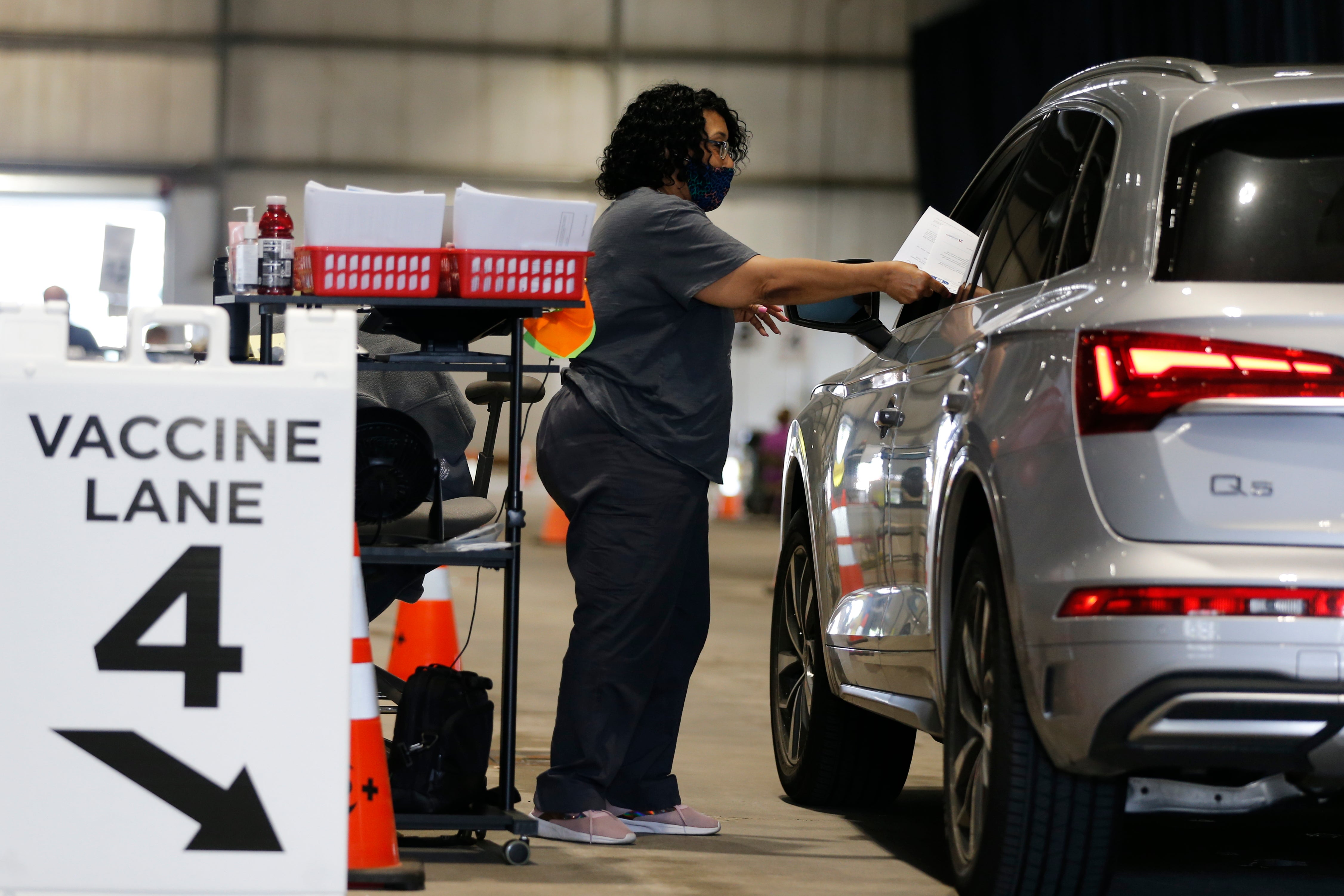Delta variant likely to become dominant coronavirus strain in US, former FDA chief says
Roughly 10 per cent of new US infections linked to more-contagious variant as several states struggle to meet vaccination goals

Your support helps us to tell the story
From reproductive rights to climate change to Big Tech, The Independent is on the ground when the story is developing. Whether it's investigating the financials of Elon Musk's pro-Trump PAC or producing our latest documentary, 'The A Word', which shines a light on the American women fighting for reproductive rights, we know how important it is to parse out the facts from the messaging.
At such a critical moment in US history, we need reporters on the ground. Your donation allows us to keep sending journalists to speak to both sides of the story.
The Independent is trusted by Americans across the entire political spectrum. And unlike many other quality news outlets, we choose not to lock Americans out of our reporting and analysis with paywalls. We believe quality journalism should be available to everyone, paid for by those who can afford it.
Your support makes all the difference.The highly transmissible Delta variant of the coronavirus is likely to become the dominant form of the virus in the US, according to former Food and Drug Administration commissioner Scott Gottlieb.
Roughly 10 per cent of infections in the US are linked to the variant, but that rate is doubling every two weeks, the former FDA chief told CBS News on Sunday.
“That doesn’t mean that we’re going to see a sharp uptick in infections, but it does mean that this is going to take over,” he said. “And I think the risk is really to the fall that this could spike a new epidemic heading into the fall.”
The more-contagious B 1.161.2 variant – a common development as a virus replicates through transmission – was first discovered in India and has emerged as a dominant strain in the UK, responsible for roughly 90 per cent of new infections there.
A risk of outbreaks in the US could be particularly acute in regions where vaccination rates have lagged, like in the US south, where four neighbouring states – Arkansas, Louisiana, Mississippi and Alabama – have the lowest rates in the nation.
In Mississippi, the lowest-ranked state for vaccinations, roughly 29 per cent of the population is fully inoculated from the virus, or have received two doses of Pfizer or Modera vaccines or a single dose of Johnson & Johnson’s vaccine.
Nationally, 43 per cent of the US is fully vaccinated, including more than 54 per cent of US adults, according to the US Centers for Disease Control and Prevention. More than 64 per cent of adults have received at least one dose of available vaccines.
“I think in parts of the country where you have less vaccination – particularly in parts of the South, where you have some cities where vaccination rates are low – there’s a risk that you could see outbreaks with this new variant,” Mr Gottlieb said.
The three available vaccines approved in the US appear to be effective against the more-contagious variant, “so we have the tools to control this and defeat it,” he said. “We just need to use those tools.”
Spread of the Delta variant in the US has underscored the nation’s race to vaccinate as many Americans as possible, with President Joe Biden aiming to partially vaccinate at least 70 per cent of adults by 4 July.
At least 14 states have reached that benchmark, and a dozen others are on pace to meet that goal, though the lagging pace of vaccinations in other states has altered the overall national rate.
White House coronavirus advisers have pleaded with governors and state and local officials to ramp up the pace of vaccinations as the threats from variants – replicating through community transmission, which remains moderately high throughout the US – could undermine relative progress in combatting the disease.
Nearly 600,000 Americas have died from Covid-19 within the last year, according to the CDC.
Join our commenting forum
Join thought-provoking conversations, follow other Independent readers and see their replies
Comments